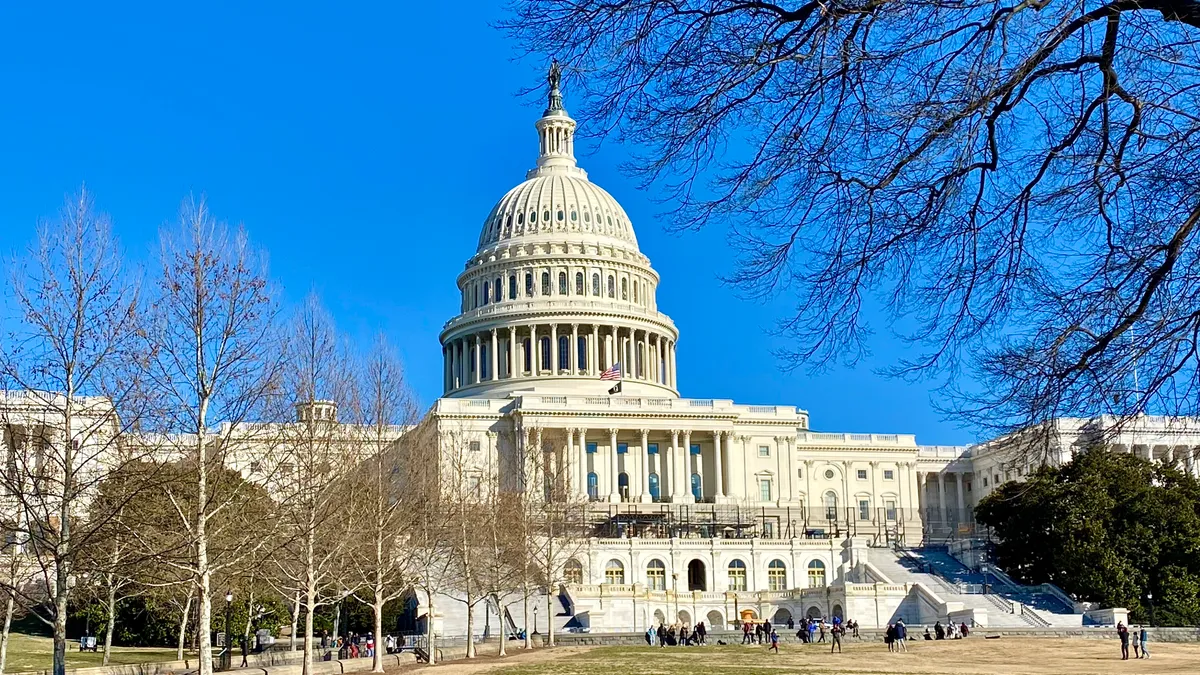The following is an opinion article written by Tom Madrecki, vice president of supply chain and logistics for the Consumer Brands Association.
As anyone who went searching for toilet paper or chicken in March 2020 can attest, the pandemic made it much more common for otherwise essential goods to suddenly be wiped from store shelves or online marketplaces.
While the pandemic has begun to fade in the rearview (for now anyway), a constant stream of disruptions — from extreme weather to food recalls to war — has left the supply chain in crisis mode. Yet Congress has turned away from supply chain policies that would have a meaningful impact in reducing friction and the likelihood that consumers are met with empty shelves again.
Extreme and geopolitical tensions over the past few months have upended the supply of the raw materials needed to produce everyday items, such as wheat, palm and cooking oil. As these disruptions became more acute, politicians sounded the alarm, task forces were assembled and legislative solutions proposed to mitigate the negative impact of the constant disruptions that exacerbated the burden on an already fragile supply chain.
As the voice of the industry responsible for getting essentials to consumers every day, the Consumer Brands Association led the call on Congress with more than 130 diverse industry groups to pass bipartisan supply chain provisions that would have created badly needed visibility and resiliency.
But Congress just missed a critical moment to pass policy that would have done just that, failing to include provisions within the CHIPS and Science Act that would have established a Manufacturing Security and Resilience Program tasked with leading a government-wide effort to address supply chain risk.
The value of greater visibility has been on stark display with the baby formula shortage. Shockwaves reverberated across the country when baby formula disappeared from supermarket and drugstore shelves, leaving Americans to wonder how the supply challenges of such a vital product — with so few viable alternatives — were not understood. Formula shortages had been growing for months, yet the FDA did not factor that into its decision-making. What would it have meant to have a dedicated office capable of seeing the whole board — and thinking about the potential chain reaction to guard against devastating consequences?
The shortage of such a critical product should have been reason enough to accelerate supply chain policy. Unfortunately, it didn’t. Congress opted not to pass desperately needed provisions to help predict and prevent the next crisis.
Acting on supply chain has bipartisan support. It has backing from the industries that make and deliver the essential goods American families rely on each day. Polls show most Americans want it. The legislation text is written and ready. But in the eleventh hour, these key supply chain remedies were stripped from the bill they were contained in that ultimately passed without them. Now lawmakers are heading out of town for summer recess.
Americans won’t be forgiving if Congress waits until the next crisis. They increasingly blame supply chain challenges and constraints for inflation. Congress must resurrect the legislative blueprint they walked away from as soon as possible. Their attention this fall will undoubtedly be on midterm elections; however, taking action in the fall should be on the table. Congress has planned session weeks and the language exists. Let’s find a vehicle to make it happen.
While we can’t predict the next geopolitical threat, heat wave or COVID variant, we can be better prepared to handle and minimize the impact of disruption. Being blindsided is a choice. And Congress can and must make the right one by passing supply chain policy.













